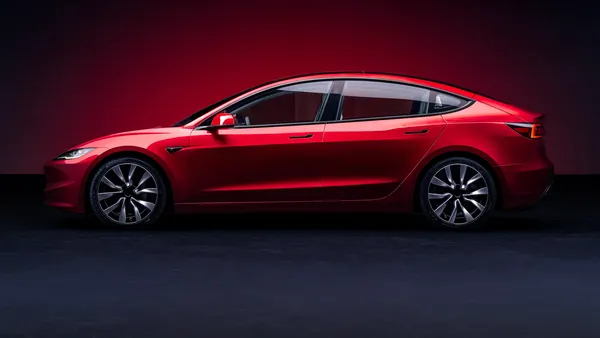Editor's note: This story is part of the WardsAuto digital archive, which may include content that was first published in print, or in different web layouts.
DETROIT – Ready or not, automakers need to accept the reality of electric vehicles in the marketplace, Renault-Nissan CEO Carlos Ghosn says in a wide-ranging media backgrounder at the auto show here last week.
Asked whether EVs represent a threat to the industry’s traditional business model – a theory somewhat espoused earlier in the day by Fiat Chrysler Automobiles CEO Sergio Marchionne, Ghosn says in so many words, resistance is futile.
“Electrification is not a question of whether we want it or don’t want it,” he says. “It’s like globalization; it’s happening. It’s not a question of whether there’s a risk or not.”
Ghosn acknowledges the gap between emissions/fuel-economy requirements and consumers’ willingness to shell out for EVs that cost substantially more than conventionally powered vehicles and offer a more limited driving range. But regulators call the shots as much or more than the customer, he says, and they are pushing the industry toward electrification in no uncertain terms.
“It’s a complex problem,” he says, pointing out that buyers are reluctant to make the leap to EVs. “All the technology is available. The question is what is the price the consumer is ready to pay? That’s the struggle.
“At the end of the day, you have 85 million cars sold every year. And when you look at what is sold, it is very conservative when it comes to technology,” he adds. “Customers are very prudent.”
But governments tend to have their way, he says, pointing to diesel-car sales trends in Europe. Heavily incentivized by fuel taxes and other means, demand for diesel vehicles topped 50% in some markets, but that share is beginning to erode as environmentalist lobby against the engines and lawmakers have cut down on the carrots and sticks that were promoting their sales.
“So our industry is not driven only by what the consumer wants, it is driven also by the regulators and the government giving signals about where we are heading,” Ghosn says. “And today, all the signals are going toward emissions being a big factor.
“Zero emissions is what many governments want to see happen,” he adds. “And it’s going to take some time before the consumer jumps into it. But frankly everything you read…is pointing to the fact that (fuel-economy standards) are going to be impossible to reach without a strong contribution from (EVs).
“A lot of car companies that were hostile or skeptical toward electric cars now are coming forward and saying we’re going to invest. It’s not going to be an easy shift, but I don’t see how we can escape this one.”
Ghosn says EV costs and driving range will improve, but buyers won’t truly feel comfortable with battery-powered cars until quick-charging stations proliferate.
“I’ve bought a lot of cars in my life and I’ve never asked what’s the range of my car,” he says. “Why? Because you have gasoline stations all over the place. When you start to see the infrastructure put in place, the range of electric cars going up (and) the cost of electric cars going down, I can bet you’re going to see a major shift toward electric cars.”
Ghosn says charging system suppliers have presented Nissan with technology plans for fast charging a battery in as little as 10 minutes.
In other topics, Ghosn says:
- Look for modest global sales growth of 1%-2% in 2016, with Europe and the U.S. gaining slightly and China up about 5%. Difficult spots will continue to be Brazil, Russia and Japan.
- The market in Iran (where Renault widely is expected to make a return) looks promising, “but we have to be extremely careful. Yes, today it is more than 1 million cars and has potential to do 1.5 million or 2 million. So yes, there’s a lot of potential, but the political climate has to be correct” and the automaker’s legal team has not given the greenlight to re-enter to the market.
- Industry consolidation should and will continue, but partnerships will be strategic, not all-consuming. “It won’t be A buys B or B eats C. It’s A and B are alive and want to keep their identities, but work together in order to both benefit from the large scale.” Consolidation is happening, but is centered on technology and market-specific partnerships, because the costs to go it alone are too high. “(You) need to work with other entities even though you compete with them.”
- Autonomous technology won’t sound the death knell for performance cars. “We see enthusiast vehicles as totally compatible with autonomous drive. It’s just giving the driver the choice of driving or not driving. I don’t see any change we need to do within the organization to maintain cars for the enthusiast. You’re going to see a lot of technology development along these lines.”










